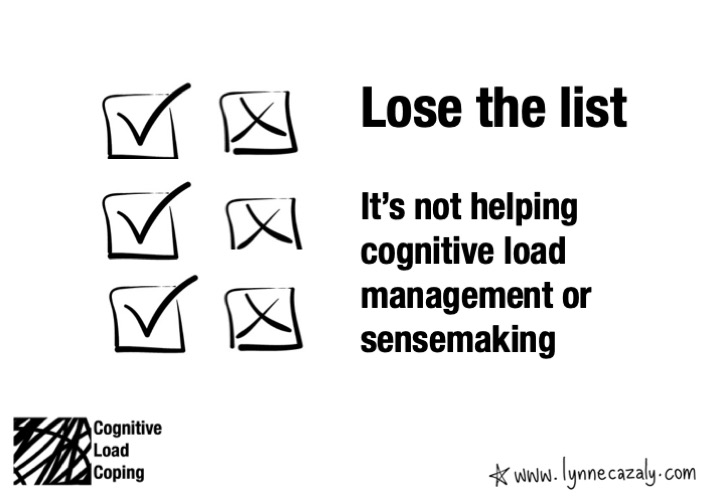The 2 things for better cognitive load management
 Tuesday, September 10, 2019 at 4:15PM
Tuesday, September 10, 2019 at 4:15PM  In their prediction for the skills we’d be needing now, by 2020, the Institute for the Future identified Cognitive Load Management in the Top 10.
In their prediction for the skills we’d be needing now, by 2020, the Institute for the Future identified Cognitive Load Management in the Top 10.
It's about how we cope with all that information.
But it’s not one thing; I see Cognitive Load Management involving 2 capabilities:
🔹 To discriminate + filter information for importance, and
🔸To understand how to maximize our cognitive function (using a variety of tools and techniques.)
The answer is not about having a new app to manage, store or retrieve our own information better. We need to be able to firstly identify what’s important in the information we’re exposed to. And then we need to work with our own thinking, listening and sensemaking capabilities to handle that information better than we currently do.
I’m helping teams (via 1/2 day workshops) and individuals (via 1:1 skills sessions online) to build skill and change the way they cope with information.
It could be the best value session of your development program this year - being able to handle information better. What’s that worth to you?





















